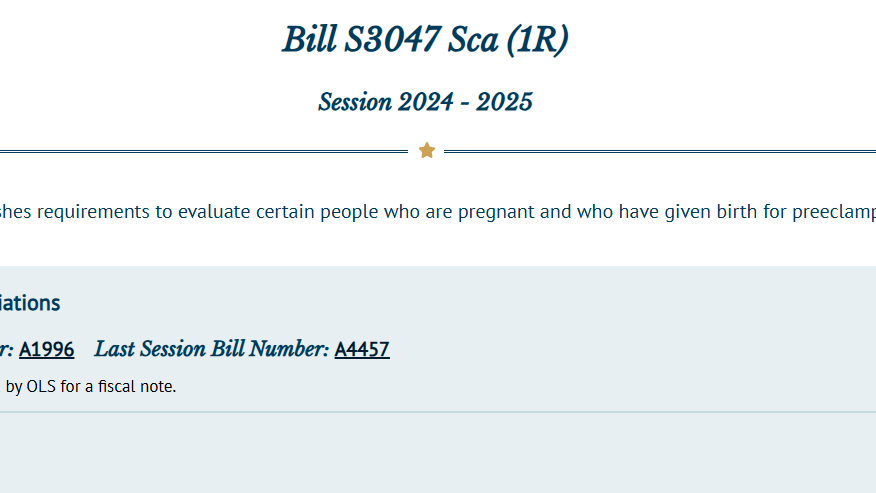TRENTON, N.J. — The New Jersey Senate Health, Human Services and Senior Citizens Committee has approved amended legislation that would require certain health care providers to evaluate patients for hypertensive disorders related to pregnancy, including postpartum preeclampsia and hypertension, when symptoms are present.

Senate Bill No. 3047, as revised by the committee on March 3, directs licensed birthing centers, federally qualified health centers, and health care practitioners offering prenatal or postpartum care within 12 weeks of childbirth to adopt protocols for evaluating patients who display relevant symptoms and have not previously been diagnosed.
Under the bill, evaluations are to be based on best practices recommended by nationally recognized medical bodies such as the American College of Obstetricians and Gynecologists. Evaluations remain voluntary, and patients may decline them without submitting a written refusal.
Health care providers must also give patients evidence-based information on hypertensive disorders related to pregnancy, inform them of the benefits of evaluation, and, if results are positive, develop a treatment plan to minimize risk.
Key amendments narrow scope and clarify requirements
The committee made several amendments to the bill before advancing it. Notably, hospitals were removed from the scope of the legislation, and references to “screening” were changed to “evaluation.” The amendments also clarified that care providers covered under the bill include those offering care within 12 weeks postpartum, and replaced earlier provisions with language requiring adherence to nationally recognized treatment practices instead of state-developed guidelines.
Additional changes removed mandates related to home blood pressure monitoring, written refusals, and a proposed preeclampsia education program. The State Board of Medical Examiners and other relevant licensing bodies will be required to adopt regulations under the bill, while rulemaking by the Department of Health is made optional.
The bill is set to take effect 180 days after adoption.
